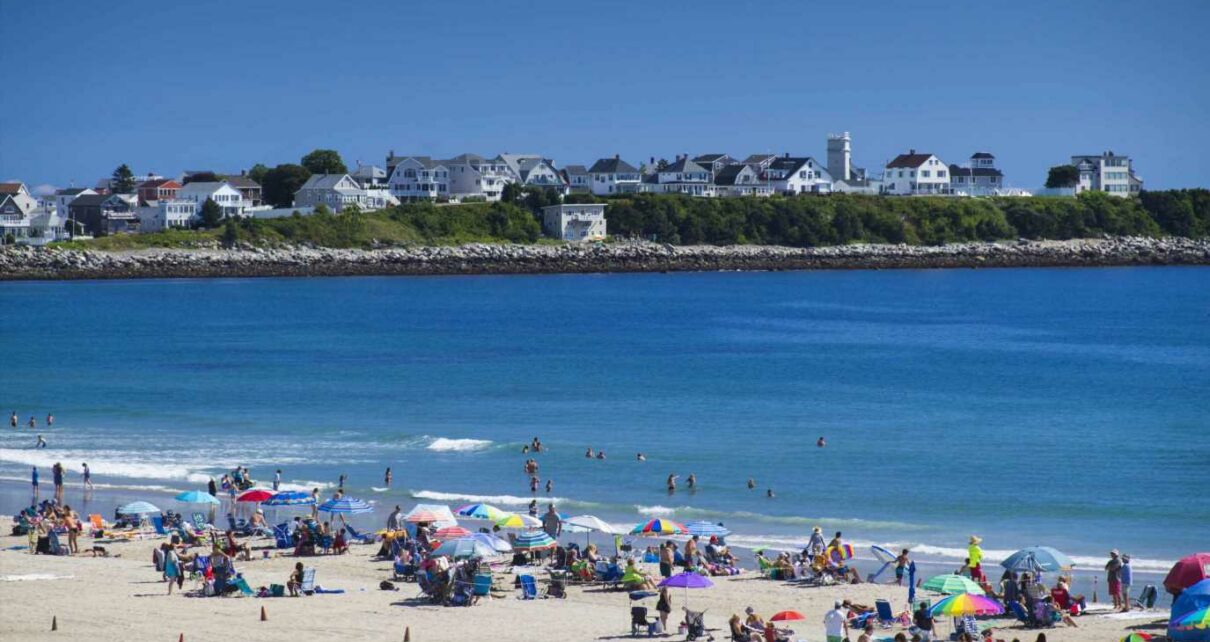HOLIDAYMAKERS across the US are in for a shock as several popular beaches have been found to be infested with faecal bacteria.
Popular swimming beaches in Malibu, Miami and Hawaii are riddled with disturbing quantities of enterococcus bacteria, which poses a health risk to beachgoers.



A study by the Surfrider Foundation, an ocean protection organisation, found unsafe levels of faecal bacteria in 19 per cent of their 9,000 samples taken across the US last year.
Sixty-one per cent of the 496 sites tested had at least one sample that exceeded the recreational water health standard.
These include popular holiday hotspots on both the East and West Coast as well as paradise island in Hawaii.
Enterococcus bacteria found in the water in these areas indicates that there is faecal material floating around which can lead to nasty health issues, including rashes and infections.
read more holiday warnings

Spain holiday warning as beach loved by Brits is closed over ‘faecal’ bacteria

Brits face holiday chaos as union bosses wage war against plans to end pingdemic
Those with the unfortunate red flag included Topanga beach near Malibu, Miami Beach, East Hampton, Hanamā‘ulu in Hawaii and Opal Cliffs, Santa Cruz.
Surfrider's Clean Water initiative warns that 900 billion gallons of untreated sewage make their way into surface waters every year.
This can be caused by sewage spills and failing wastewater infrastructure particularly in the aftermath of storms which, in turn, contaminates local waterways and eventually the ocean.
This sewage contains a concoction of bacteria, viruses and parasites, which can cause a whole host of health concerns including eye, nose and ear infections and gastronomical issues.
Most read in The Sun

Disgraced ex-Sky Sports host weds daughter's best friend 30 years his jnr

Highest earning daytime TV host revealed – and it's not Holly Willoughby

Nicole Scherzinger ENGAGED to rugby star Thom Evans as he pops question on beach

I begged my daughter Katie Price to stop her dangerous plastic surgery
In urban areas, faecal water contamination is often traced back to private septic systems.
“Septics and cesspools, when it rains, can leach effluent out into local waterways,” Mara Dias, Surfrider’s water quality initiative senior manager, told Yahoo News.
The eastern beaches of Oahu island in Hawaii, scored particularly high in terms of bacteria levels, with twenty beaches near Kailia Bay having more than half their samples exceed health standards.
The polluted waters pose an issue for surfers who spend prolonged periods of time in the ocean and sparked fears across the resort island.
“I get cellulitis all the time, I never had that growing up. Now the littlest cuts you can’t avoid it because the bacteria is super high,” surfer and Oahu resident Jason Allen told KITV4.
Earlier this month, beachgoers in the US were warned to stay clear of seaweed as they contained toxic clumps of "flesh-eating" bacteria.
Swathes of brown algae – known as Sargassum – have been blanketing beaches in South Florida in recent weeks, floating in from an ominous mass first spotted in the Atlantic Ocean in 2018.
Research showed that the brown algae lining places like Miami Beach and Key Biscayne make an ideal host for for a bacteria species called Vibrio vulnificus.
The bacteria can cause gut issues and diarrhoea as well as fever and stomach cramps – within 24 hours of you ingesting it.
In some rare cases, that can cause a "flesh-eating" infection called necrotising fasciitis, which is fast-moving and can be fatal within days.
Read More On The Sun

Stacey Solomon strips off for bikini video four months after giving birth

Popular UK theme park offers seven days for the price of one
Meanwhile, British holidaymakers headed for Spain have been warned about the same issue of too much faecal bacteria in the water.
Today, a red flag has been raised at the popular beach in Arenal, Alicante – barring all from the beach until the water returns to safe levels.


Source: Read Full Article

